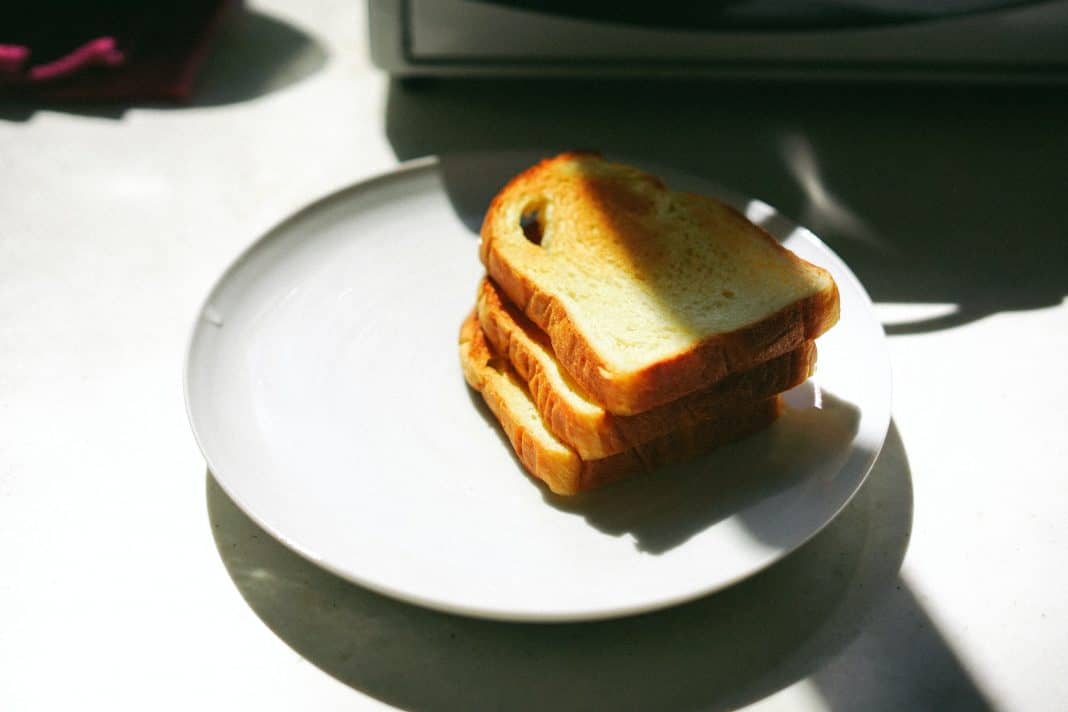Your favorite foods are trying to kill you. Or not. Every once in a while, a scientific study will seem to confirm our darkest dietary fears. Word spreads quickly, prompting fad diets and even new regulations. Soon, you’re carefully reading restaurant menus to avoid gluten, salt, cholesterol, or anything else that might endanger your health.  In reality, most of these food scares are based on bad research and misunderstood science. For instance, you’ve probably heard about how…
In reality, most of these food scares are based on bad research and misunderstood science. For instance, you’ve probably heard about how…
1. Gluten is bad for everybody.
Celiac disease is a serious condition, and it’s not particularly new. It’s characterized by extreme reactions to gluten, a protein found in certain grains (especially wheat). But over the last decade, demand for gluten-free products has skyrocketed. Doctors have also reported a dramatic increase in self-reported cases of non-celiac gluten intolerance, also called gluten sensitivity.  To be clear, celiac disease is a real thing. Non-celiac gluten sensitivity (NCGS) might be too, but it’s almost certainly not very widespread. As a 2015 study noted:
To be clear, celiac disease is a real thing. Non-celiac gluten sensitivity (NCGS) might be too, but it’s almost certainly not very widespread. As a 2015 study noted:
There is some evidence that NCGS may exist, but probably only in a small number of people. The self-reported NCGS patients are heterogeneous (in their range of reported symptoms, clinical histories and characteristics) and are highly suggestible, making a largely difficult patient group to study.
In other words, removing gluten from your diet probably won’t do anything. Granted, some gluten-rich foods (notably white bread) are also high in sugar, which isn’t so great for you (more on that in a moment). But the gluten protein itself usually isn’t an issue.
2. High-fructose corn syrup is the worst substance in history.
Buying something sweet? Better check the label for high fructose corn syrup. Scientists have linked the substance to rises in obesity, after all, and it’s extremely unnatural. Well, not quite. High fructose corn syrup certainly isn’t a health tonic, but it’s not any worse for your body than other sugars. Although it has been linked to obesity, many scientists believe that link is tenuous at best.  “There’s no substantial evidence to support the idea that high-fructose corn syrup is somehow responsible for obesity,” said Walter Willett, MD, the chairman of the nutrition department of the Harvard School of Public Health, in an interview with the New York Times. “If there was no high-fructose corn syrup, I don’t think we would see a change in anything important. I think there’s this overreaction.” To be clear, you can’t just gorge on corn syrup all day and expect to run marathons. The World Health Organization (WHO) recommends that adults should limit their sugar intake to 5 percent of their total daily calories. That’s about six teaspoons of sugar per day. For reference, a 12-ounce can of soda contains about nine teaspoons.
“There’s no substantial evidence to support the idea that high-fructose corn syrup is somehow responsible for obesity,” said Walter Willett, MD, the chairman of the nutrition department of the Harvard School of Public Health, in an interview with the New York Times. “If there was no high-fructose corn syrup, I don’t think we would see a change in anything important. I think there’s this overreaction.” To be clear, you can’t just gorge on corn syrup all day and expect to run marathons. The World Health Organization (WHO) recommends that adults should limit their sugar intake to 5 percent of their total daily calories. That’s about six teaspoons of sugar per day. For reference, a 12-ounce can of soda contains about nine teaspoons.
3. Unless you want heart disease, avoid egg yolks at all costs.
Eggs carry a lot of dietary cholesterol—about 200 milligrams, to be exact. That cholesterol is concentrated in the egg yolk, so if you’re trying to keep your heart healthy, conventional wisdom suggests that you should stick to the whites.  However, dietary cholesterol is fundamentally different from the cholesterol in your blood. According to the Harvard School of Public Health, “up to one egg per day is not associated with increased heart disease risk in healthy individuals.”
However, dietary cholesterol is fundamentally different from the cholesterol in your blood. According to the Harvard School of Public Health, “up to one egg per day is not associated with increased heart disease risk in healthy individuals.”  That doesn’t mean that you should start slamming down omelets. Eggs are perfectly fine in moderation, but if you regularly overload your plate, you’re probably not helping your cardiovascular system.
That doesn’t mean that you should start slamming down omelets. Eggs are perfectly fine in moderation, but if you regularly overload your plate, you’re probably not helping your cardiovascular system.
4. Probiotics are the only way to save your ailing gut.
This is a fairly recent fad, prompted by a number of studies that have demonstrated the importance of a healthy gut microbiome (all of the bacteria living in your digestive system). Our digestive processes are aided by trillions of bacteria, so if something’s wrong with your gut, probiotics—products that introduce new “good” bacteria to your digestive tract—seem like a great idea.  Unfortunately, the probiotics you’ll find at your local pharmacy probably don’t do much of anything. We simply don’t know which bacteria are most important, and there’s some evidence to suggest that different bacteria species can play varying roles based on your genetics. “Although some probiotics have shown promise in research studies, strong scientific evidence to support specific uses of probiotics for most health conditions is lacking,” wrote the National Center for Complementary and Integrative Health.
Unfortunately, the probiotics you’ll find at your local pharmacy probably don’t do much of anything. We simply don’t know which bacteria are most important, and there’s some evidence to suggest that different bacteria species can play varying roles based on your genetics. “Although some probiotics have shown promise in research studies, strong scientific evidence to support specific uses of probiotics for most health conditions is lacking,” wrote the National Center for Complementary and Integrative Health. 
The U.S. Food and Drug Administration (FDA) has not approved any probiotics for preventing or treating any health problem. Some experts have cautioned that the rapid growth in marketing and use of probiotics may have outpaced scientific research for many of their proposed uses and benefits.
5. Table salts will corrode your insides, but sea salt is much healthier.
Table salts typically undergo a great deal of processing, which makes them dangerous…right?  Well, no. Most ordinary table salts are actually slightly better for you than sea salts, since table salts contain iodine, an essential nutrient. Table salts also typically contain additives to prevent clumping, but those additives are perfectly safe. Otherwise, the only differences in salts are taste and texture, so they’re both perfectly fine in moderation (somewhere around 2,300 milligrams per day or less, according to the Mayo Clinic).
Well, no. Most ordinary table salts are actually slightly better for you than sea salts, since table salts contain iodine, an essential nutrient. Table salts also typically contain additives to prevent clumping, but those additives are perfectly safe. Otherwise, the only differences in salts are taste and texture, so they’re both perfectly fine in moderation (somewhere around 2,300 milligrams per day or less, according to the Mayo Clinic).



